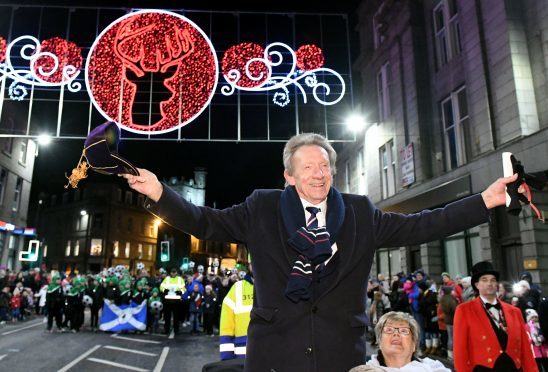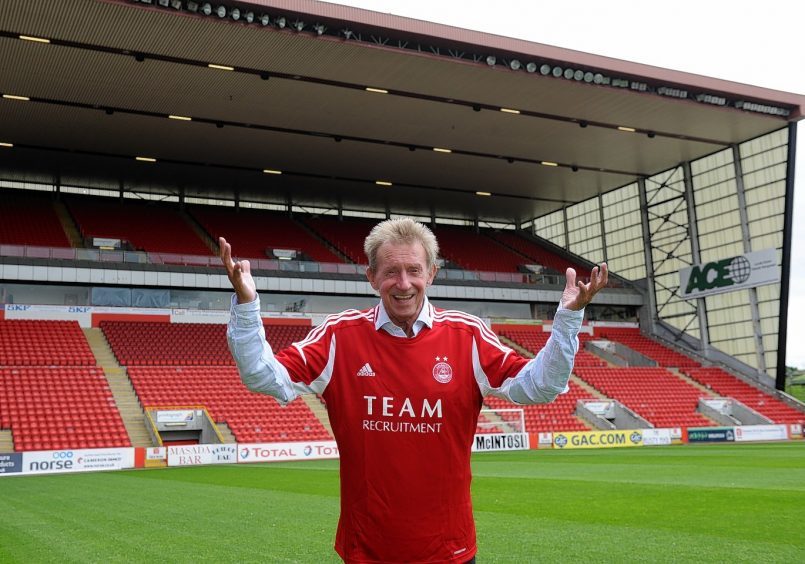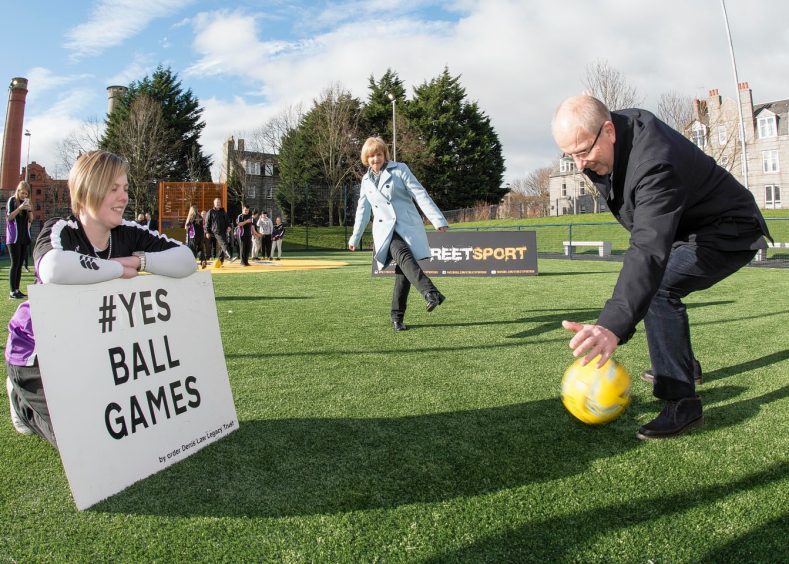The list of football knights is a stellar collection and nobody would begrudge the likes of Bobby Charlton and Kenny Dalglish their place in the pantheon.
Yet there is at least one notable omission which needs rectifying and it’s surely overdue for Aberdeen’s most famous footballer to join the ranks.
Denis Law was back in his home city last week, lending his lustre to the creation of the second Cruyff Court and, even at 78, this redoubtable character keeps working to help underprivileged youngsters.
The Streetsport programme which bears his name has been a fantastic success in recent years and has offered opportunities to thousands of children across the north east.
It is exactly the sort of initiative which one would have expected from Law, one of the most down-to-earth and self-deprecating individuals who has ever graced the game.
At the height of his powers, he genuinely was a wondrous, mischievous sprite. He dazzled for Scotland and scored one of the goals when they famously defeated world champions England 3-2 at Wembley in 1967.
He glittered while helping Manchester United become an iconic force who lifted the European Cup a year later; and he oozed talent, technical ability and a temperament which steered to him winning Fifa’s Ballon d’Or.
The statistics speak for themselves – he amassed 30 goals in 55 Scotland internationals and 237 goals in 404 appearances at Old Trafford and helped the club win the First Division in 1965 and 1967 – but they never told the full story.
Because, whether in refusing to celebrate his goal which consigned United to relegation after he moved to their great rivals, Manchester City in the 1970s, or in his obvious delight at performing alongside such stellar figures as George Best and Bobby Charlton, there is a decency, dignity and sense of derring-do stamped in his DNA.
Some former players become curmudgeonly types, forever bemoaning their conviction that the game has gone downhill since they made their exit. But Law has never been one to dwell in the past.
Instead, he has championed such causes as getting “No Ball Games” signs removed from communal areas and he has worked tirelessly to promote the benefits of sport in boosting health and tackling anti-social problems.
He already has a CBE and was accorded the Freedom of Aberdeen last year – the first person to receive the accolade since the Scotland the What trio in 2008 and only the second since Sir Alex Ferguson was honoured in 1999.
That accolade was bestowed on him, not just because he was a sublimely talented footballer in his younger days, but for the fashion in which he has illuminated so many people’s lives on his travels.
It would surely be a fitting addition if he now received a knighthood for his boundless exertions on and off the pitch.


